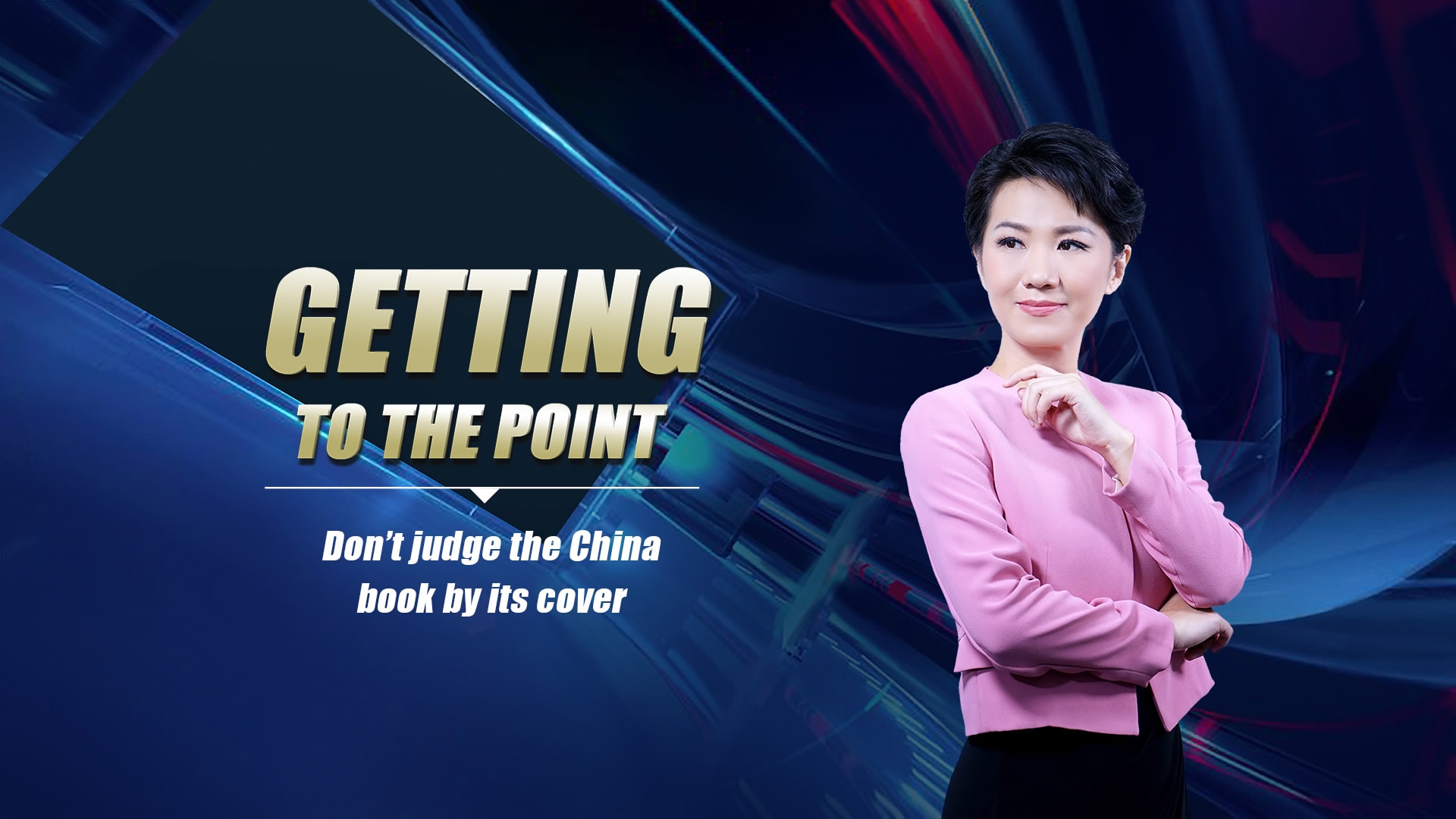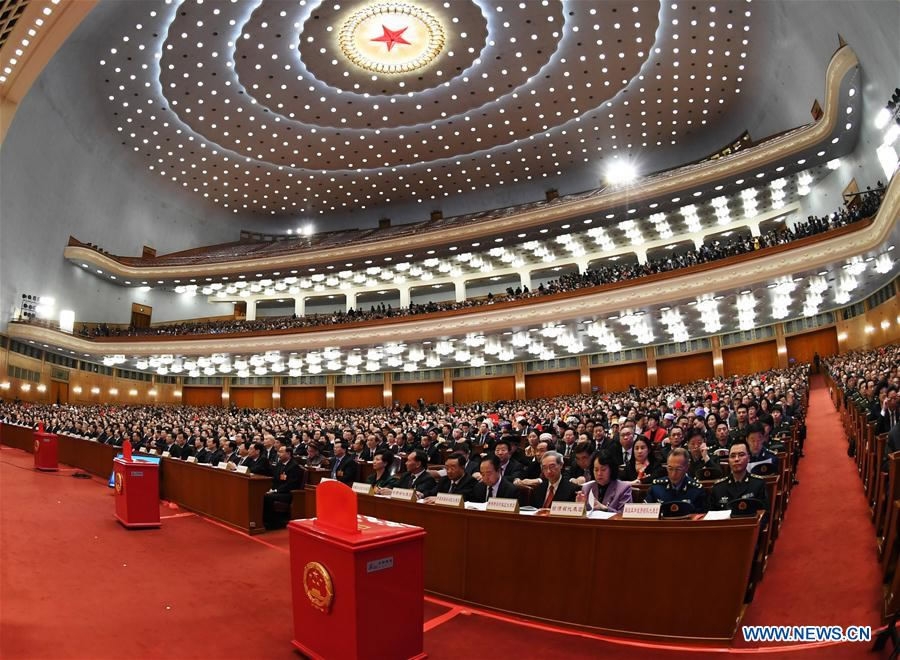
Opinions
22:53, 14-Mar-2018
Getting to the Point: Don’t judge the China book by its cover
CGTN's Liu Xin

When I read through mainstream liberal media reports, there is no shortage of alarmist language about China’s latest constitutional amendments, especially concerning the lifting of the limit on presidential terms. The most common headlines claim that China’s constitutional amendments allow the president to “rule indefinitely,” be “president for life,” or make “a move toward one-man rule.”
It is not a surprise. Whenever China makes a big political move, mainstream liberal media wouldn’t miss a chance to share their snap judgments. What they often fail to provide, however, are explanations about why China deemed such a move necessary. On top of that, they have been trying to gauge China’s decisions by using outdated Western theories, despite the fact that such efforts have been repeatedly proven irrelevant.

A deputy to the 13th National People's Congress (NPC) casts her ballot on a draft amendment to the country's Constitution at the third plenary meeting of the first session of the 13th NPC in Beijing, capital of China, March 11, 2018. /Xinhua Photo
A deputy to the 13th National People's Congress (NPC) casts her ballot on a draft amendment to the country's Constitution at the third plenary meeting of the first session of the 13th NPC in Beijing, capital of China, March 11, 2018. /Xinhua Photo
Let me add some important context. After decades of reforms and opening up, China’s development has entered a crucial period, which has been labeled a “new era.” Many of the changes to the constitutional amendments are meant to reflect new realities and to provide new guidelines for the country’s future. As the whole country gears up to achieve its goals of revitalization, aligned efforts are considered necessary even more than before. The great majority of Chinese people appreciate their country’s unity and stability, which has not come easily. And the amendments to the Constitution could provide greater certainty in that sense.

The third plenary meeting of the first session of the 13th National People's Congress (NPC) is held at the Great Hall of the People in Beijing, March 11, 2018. /Xinhua Photo
The third plenary meeting of the first session of the 13th National People's Congress (NPC) is held at the Great Hall of the People in Beijing, March 11, 2018. /Xinhua Photo
During the past century, China has found a unique path of development without following the models of any mainstream Western theory. Marxism also had to adapt and evolve to suit the developing Chinese story. Economically, China achieved stunning growth through trial and error by “crossing the river by feeling the stones.” Politically, the thoughts of generations of Chinese leaders on governance have also gradually developed based on China’s circumstances, experience, and experiments. We have not sought truth from theory, but from practice and facts.
Time will be the ultimate judge, but past experience has proved wrong many who write up prescriptions for China from a Western medicine textbook. We have been exploring a democratic political system of “unite and rule” instead of the Western doctrine of “divide and rule.” And China has the confidence to contribute to the universal quest for better social systems.
These circumstances are often not explained in Western media reports about China. It is also doubtful whether some reporters would have a genuine interest in doing so. Without such context, it is hard to understand the reasons behind China’s decisions, only deepening misunderstandings and promoting anxiety.
Don’t judge a book by its cover, especially if it is a copious volume. Approach the subject through the lens of the author, then one might start to understand why it’s written in a certain way.

SITEMAP
Copyright © 2018 CGTN. Beijing ICP prepared NO.16065310-3
Copyright © 2018 CGTN. Beijing ICP prepared NO.16065310-3